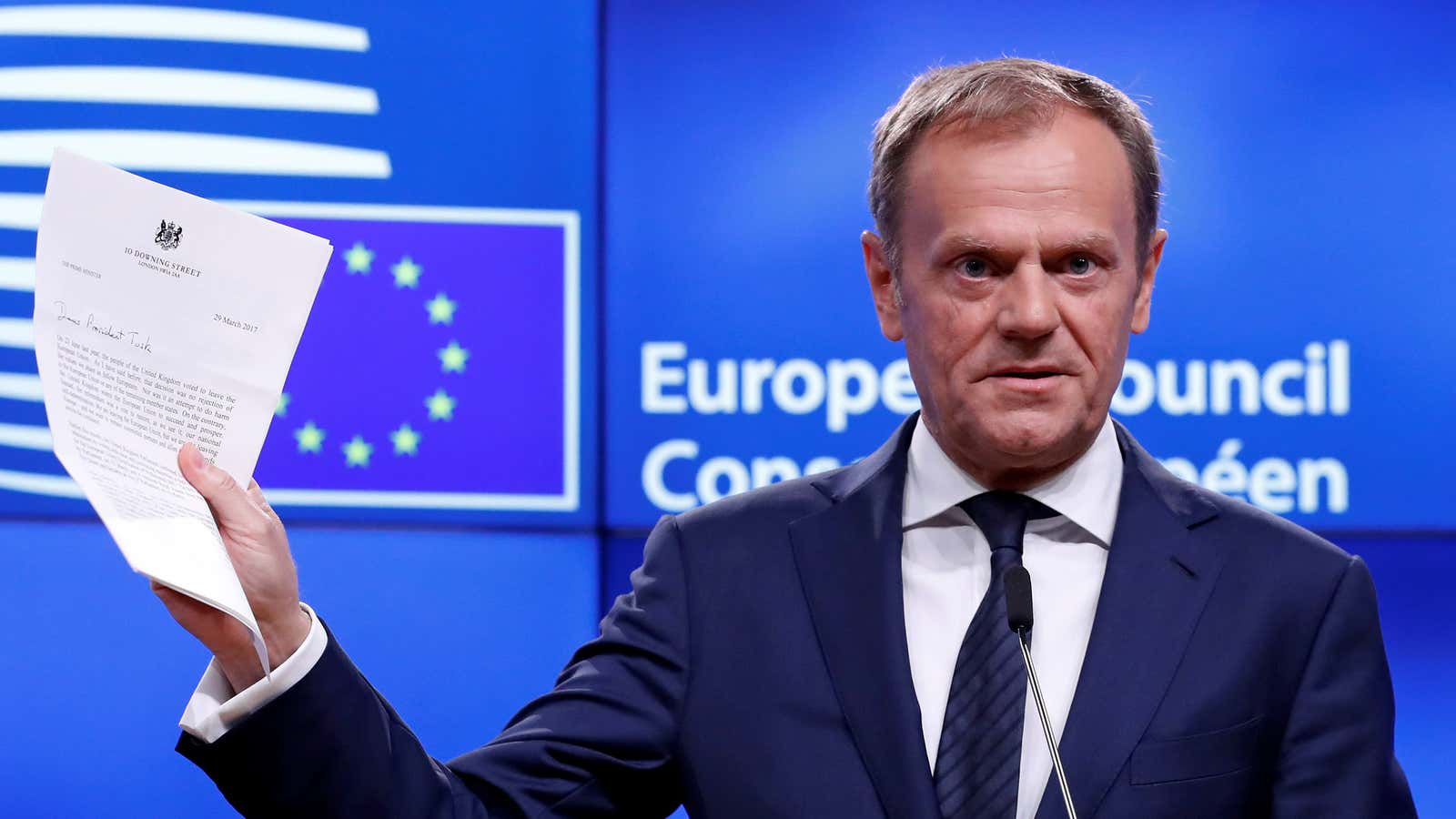The deed is done. Nine months after a narrow majority of British voters opted to end the UK’s membership of the European Union, the Brexit process has officially begun. Today, the UK’s ambassador to the EU hand-delivered a six-page letter from prime minister Theresa May to the European Council in Brussels, triggering Article 50 of the Lisbon Treaty. Two-year divorce proceedings are now formally underway.
The overall tone of this momentous correspondence between London and Brussels was polite and diplomatic. European Council president Donald Tusk was somewhat wistful in his response to May’s letter:
“There is no reason to pretend that this is a happy day, neither in Brussels, nor in London. After all, most Europeans, including almost half the British voters wish that we would stay together, not drift apart. As for me I will not pretend that I am happy today.”
He ended his address by saying, simply, “What can I add to this? We already miss you.”
May’s letter was more resolute. “The task before us is momentous but it should not be beyond us,” she wrote. She mentioned a “deep and special partnership” no less than seven times.
The prime minister did, however, acknowledge that the divorce may not be amicable. The ramifications of a rancorous break are bleak, especially when it comes to the safety and security of countries on both sides of the channel. “In security terms a failure to reach agreement would mean our cooperation in the fight against crime and terrorism would be weakened,” May wrote.
She made a similar point later in the letter: “Europe’s security is more fragile today than at any time since the end of the Cold War. Weakening our cooperation for the prosperity and protection of our citizens would be a costly mistake.”
This is what May’s opponents are jumping on today. The anti-Brexit Liberal Democrats dubbed it a “blatant threat” to withdraw security co-operation with the rest of Europe, while the Labour chair of a prominent parliamentary committee said May “should not be trying to use this as a bargaining chip in the negotiations. This is not a threat to the rest of Europe, it would be a serious act of self-harm.”
Taking questions in parliament, May rejected the notion of a threat about security in her letter: “I go on to make very clear in the letter that not having arrangements, not having agreements, on these issues would not be in the interests of the UK and European Union, and we should work to ensure that we secure a deal.”
On this, she and Tusk agree, up to a point. “There is nothing to win in this process, and I am talking about both sides,” Tusk said. “In essence, this is about damage control.”
